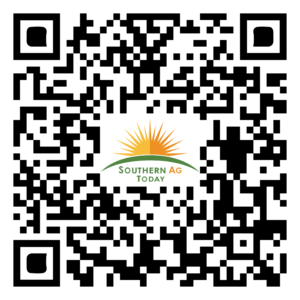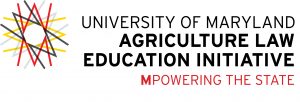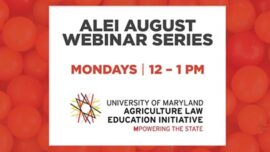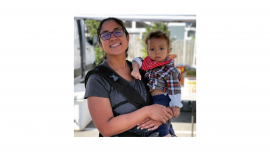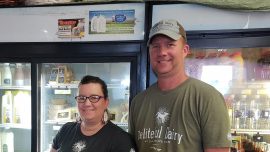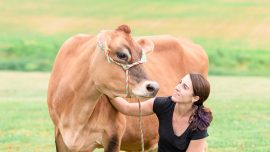May 2022 Update
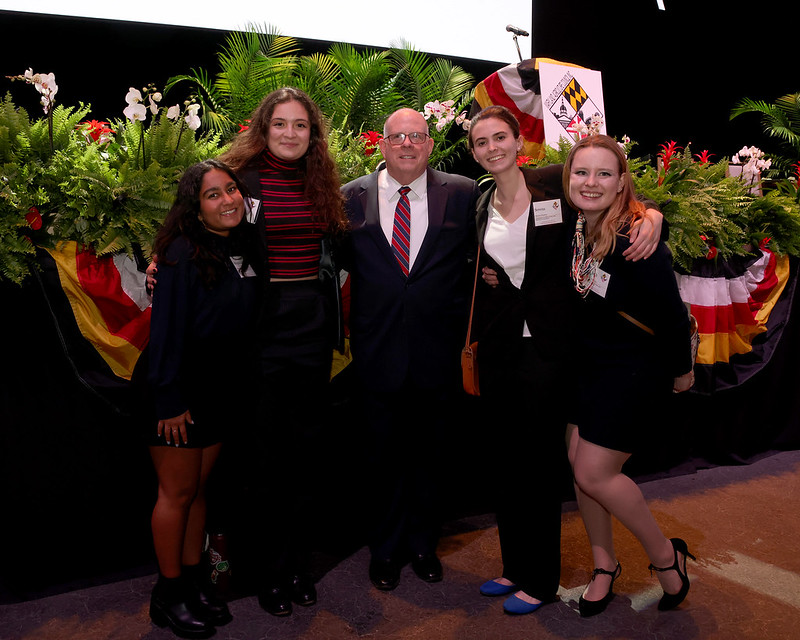
ALEI Taking Requests for Produce Safety Rule Compliance Kits
New Project Focusing on Risk Management Education for Local Farmers
New Regional Blog Focused In on Issues Impacting Agricultural Producers Launched
ALEI Taking Requests for Produce Safety Rule Compliance Kits
By: Megan Todd

Every year ALEI, in collaboration with the Maryland Food Safety Network (MFSN), hosts multiple Produce Safety Rule (PSR) Grower trainings during the winter months when growers have time to attend conferences and webinars. However, as the saying goes, growers must deal with food safety everyday, not just for a day. The multitiered requirements of the PSR can be overwhelming when a farmer sits down to plan out the specific actions needed to comply with the law.
Show More To assist Maryland growers in implementing PSR standards to their operation, ALEI Senior Research Associate Sarah Everhart and Dr. Angela Ferrelli-Gruber, another member of the MFSN, will create and distribute tailor-made PSR Compliance Resource Kits. A short survey allows farmers to communicate the types and format of resources they prefer. The survey asks about what types of workers are used, how crops are watered, if soil amendments are used, and concerns about cleaning and sanitizing practices. The resulting Kit will contain posters and handouts based on the specific areas of concerns the grower indicated in the survey. Growers can choose to receive digital or printed resources. The goal is to give farmers the precise information they need and materials appropriate for training farm workers engaged in covered activities. Although the PSR is a “one-size fits all” food safety law, we all know farms differ. According to Everhart, “Angela and I wanted to create and provide resources that help growers take what they learn in the grower training course and put it into practice on their farms.” “By having farmers provide some general information about their operations,” Everhart continues, “we are able to send them the compliance resources that will help them strengthen their individual food safety systems.” Growers who are interested in receiving a Compliance Kit can fill out the Google request form (https://forms.gle/fiy2hTAUA3JrXF6w8) or ask for a pdf version by contacting Sarah Everhart at severhart@law.umaryland.edu or (410) 458-2475. Funding for the PSR trainings and the Compliance Resources Kit is supported by the Food and Drug Administration (FDA) of the U.S. Department of Health and Human Services (HHS) as part of a financial assistance award U2FFD007444 totaling $523,497 with 100 percent funded by FDA/HHS. The contents are those of the author(s) and do not necessarily represent the official views of, nor an endorsement, by FDA/HHS, or the U.S. Government. Close
University of Maryland Baltimore Foundation, Inc. Receives Grant from The Keith Campbell Foundation for the Environment
By: Megan Todd
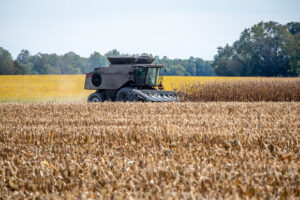
Grant Aims to Support Conservation Practices on Leased Farmland
In February, the Keith Campbell Foundation for the Environment awarded the University of Maryland Baltimore Foundation, Inc. a $40,000 grant to help farmers and farm landowners form farm leases that support on-farm conservation practices, through a newly created website. The Agriculture Law Education Initiative (ALEI) at The University of Maryland Francis King Carey School of Law is spearheading the Agricultural Conservation Lease Builder project.
Show More According to Sarah Everhart, Senior Research Associate and Managing Director of ALEI at Maryland Carey Law, the need for conservation practices on leased farmland – which makes up approximately 40 percent of farmland in the Chesapeake Bay region – is great. “When farms are rented without a lease, or with a poorly formed year-to-year lease, farmers are less likely to use conservation practices because of the uncertainty of a return on their investment,” said Everhart. “A well-formed longer-term lease, however, can help landowners and farmers have the assurance they need to undertake the on-farm conservation practices that are critically important for the Chesapeake Bay clean-up process.” ALEI and the Hughes Center for Agro-Ecology, Inc. have spent years creating educational resources and training agricultural service providers how a lease can be a tool to overcome the challenges of implementing conservation practices on leased farmland. The Agricultural Conservation Lease Builder website will serve a vital need by allowing farm landowners and farmers to customize a lease based on specific farming standards and practices. Everhart explained “The website will allow landowners and farmers to work together and create leases that support conservation priorities and encourage environmental stewardship. We are very grateful to The Keith Campbell Foundation for the Environment for the grant funding and can’t wait to get started.” Close
New Project Focusing on Risk Management Education for Local Farmers
By: Meghana Kotraiah and Paul Goeringer

The University of Maryland, along with Extension Legal Specialist Paul Goeringer, is excited to announce a new project focusing on risk management education for local farmers. This project will seek to educate these new rural landowners and existing agricultural operators and provide resources for future Extension educators’ efforts to educate new landowners.
Show More The project focuses on the issue of Maryland’s rural areas continuing to feel pressure from residents relocating from the state’s urban areas. Many of these new residents may not understand the agriculture or agricultural practices they will see in their new location. As a result of these pressures, many agricultural operators often have questions related to right-to-farm laws, recreational use, trespass, and liability due to livestock concerns. At the same time, many of these new rural landowners often have questions about legal concerns from neighboring operations related to right-to-farm laws. This education project will take the form of online learning modules, fact sheets, two in-person workshops, a webinar series, and a project website. The learning modules will use the eXtension.org campus platform, providing short overviews of the topics. The project will provide scheduled times with a team member to ask questions; fact sheets related to the right-to-farm law, agricultural leasing, hunting leases, landowner liability for trespassers, and estate planning; and sample farm examples to demonstrate to landowners the financial impact on the farm business. One particularly exciting aspect of the project is making it accessible to those in rural areas who may struggle with broadband issues or those who do not use the internet. We will host two half-day workshops covering these issues for those who might not be able to access our online learning modules. The workshops will utilize PowerPoint presentations and make copies of the fact sheets available in hardcopy and thumb drives. Paul Goeringer, who is leading this project, is excited about the opportunity to provide this valuable education to farmers in the state. “We have a chance to make a difference for these producers by using a myriad of skills to provide this education. The issues of right-to-farm laws, fence law, estate planning, landowner liability, agricultural leasing, hunting leases, legal issues associated with wildlife, livestock, and property insurance can be difficult for farmers to tackle, which is why this project is so important.” The project team will be working over the summer to develop the curriculum and release the online learning modules later this fall. The team will be hosting workshops related to the project around the state in early 2023. This is material is based upon work supported by USDA/NIFA under Award Number 2021‐70027‐34693. Close
New Regional Blog Focused In on Issues Impacting Agricultural Producers Launched
By: Paul Goeringer
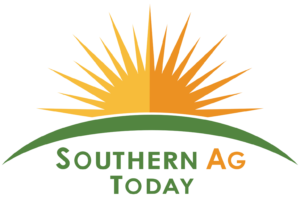
The Southern Extension Economists Committee has recently launched a regional blog focused on agricultural issues impacting agricultural producers in the South. Southern Ag Today provides peer-reviewed articles focused on issues affecting Southern farmers and producers. Daily articles synthesize the latest research, examine trade issues, interpret policy implications, and help clarify fluctuations in market changes. In addition, Fridays will feature agricultural law issues, specialty crops, rural community development, and agricultural cooperative issues. Paul Goeringer, a senior faculty specialist and Extension legal specialist, participates in the new site as a contributor and a Topic Area Coordinator for agricultural law.
Show More Southern Ag Today is a collaborative effort among 13 universities led by the Southern Extension Economics Committee (land-grant extension agricultural economists), the Agricultural and Food Policy Center at Texas A&M, and the Southern Risk Management Education Center at the University of Arkansas. The site is available at https://southernagtoday.org/, and you can scan the QR Code below to signup for email updates from the site: Close